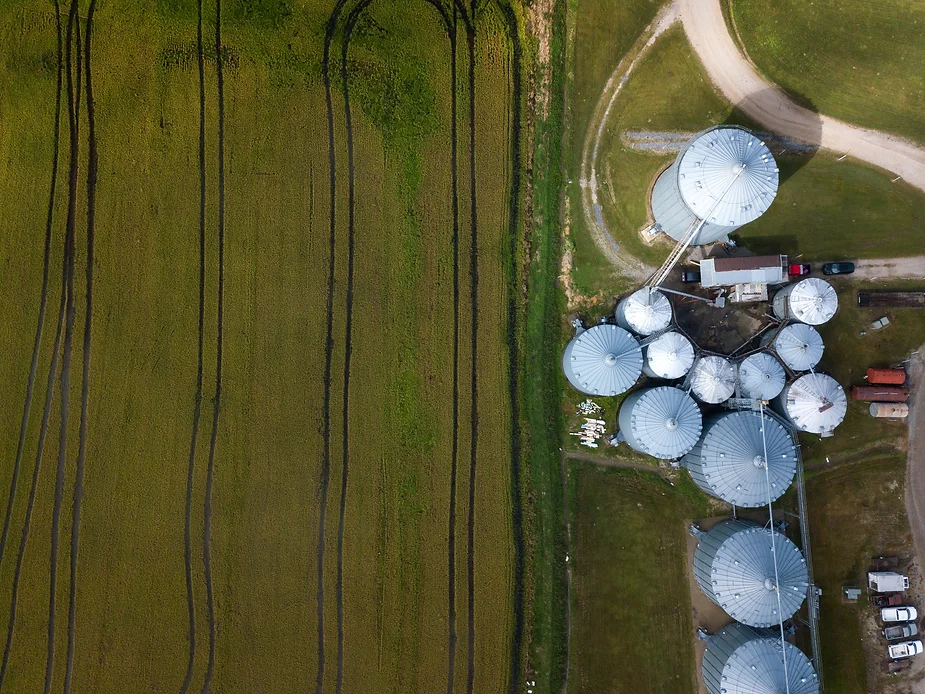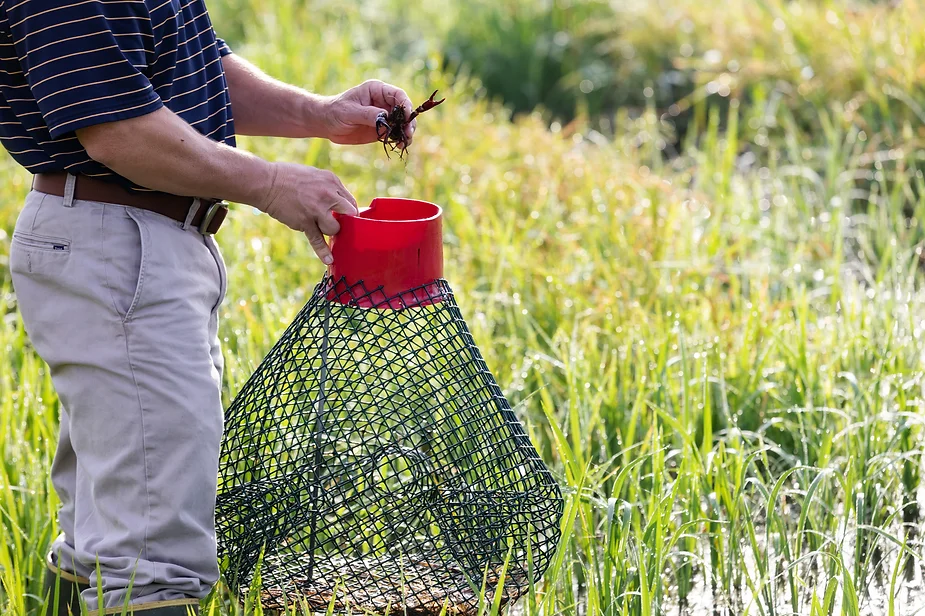JT Meleck’s farm to bottle process is about more than just producing award-winning Louisiana Rice Spirits; it’s how we remain connected to the land and conserve Louisiana’s natural beauty and resources.

Here in South Louisiana, we receive some of the highest annual rainfall totals in the contiguous United States. Thanks to this natural abundance of rainfall, our reliance on non-renewable water resources to flood our rice fields is minimized. Using water that falls as precipitation also means we spend less energy pumping water up from the ground or transporting it from distant sources.
In addition to producing the Louisiana rice used in our handmade rice spirits, the flooded rice fields on our farm provide habitat for Louisiana crawfish, a freshwater crustacean that many Louisianians enjoy eating seasoned, boiled, and served with corn and potatoes. Growing rice and raising crawfish simultaneously and in the same fields means that the overall amount of resources required for each calorie we produce is significantly lowered.

After our rice is harvested, it’s kept in our on-site grain silos and allowed to dry until it’s ready to be taken to the rice mill down the road for hulling, a process for removing the tough outer husk of rice. Our farm is located in close proximity to the mill we use for this final processing and refinement of our rice crop, further reducing the amount of resources required to make every bottle of JT Meleck we produce.
In addition to the environmental benefits our farm-to-bottle process offers, it also allows us to contribute to our local economy; we provide jobs for people living right here in Acadiana and partner with other local businesses whenever possible for things not handled in-house.